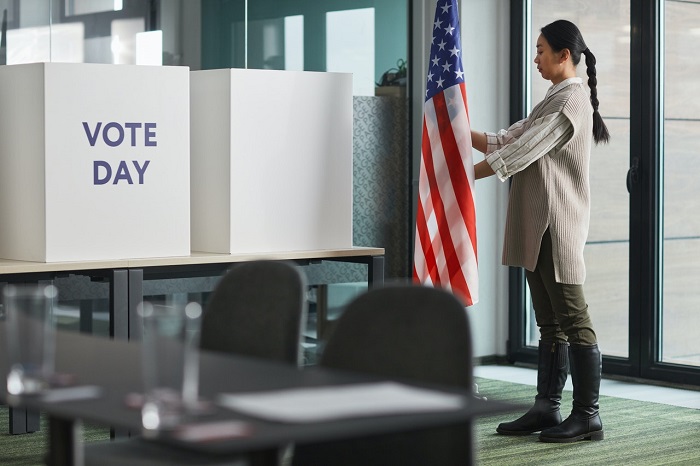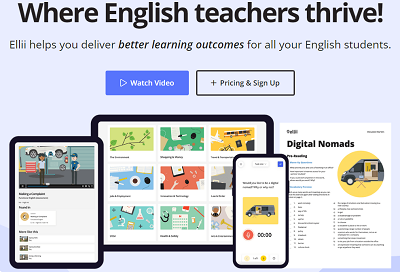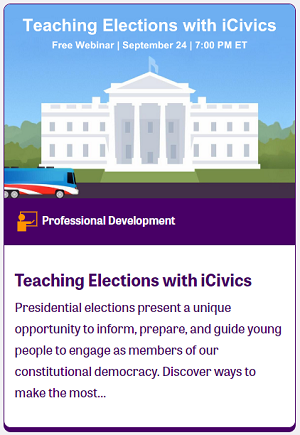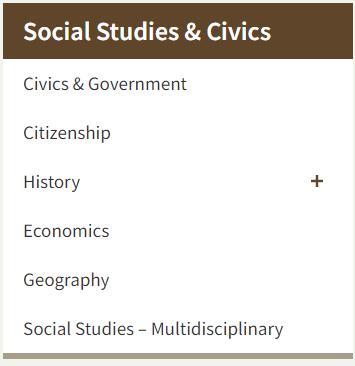- MN ABE Connect
- Archive
- Everyone Wins When Discussing the Electoral Process
 September 30, 2024
September 30, 2024
Everyone Wins When Discussing the Electoral Process
John Trerotola, Social Studies and Civics Library CuratorMany recent education-related articles have noted that teachers are reluctant to discuss this year’s election. While there are a variety of reasons for this hesitancy, educators should never be afraid to limit election and/or civics-related instruction in their respective classrooms. Based on the diverse backgrounds of our students and their thirst for knowledge, ABE teachers at all levels are in a perfect position to engage students in rich discussions, make past and present connections, and, most importantly, provide students with meaningful social studies instruction based on events that impact them, and all of us, on a daily basis.
The Presidency and American Government
 While it is easy to get wrapped up in all things related to the current election, many students are unfamiliar with the office of the presidency and the overall structure of American government. How can students understand the presidential election if they still have questions about the American system of government? Providing students with an overview will help both new learners and those with more extensive background knowledge. Among the wide range of resources on these broad topics, Ellii (formerly ESL Library) has a variety of lessons on various government topics that are perfect for the ELL classroom but are beneficial for the basic skills and high school equivalency ones as well. (Note: You’ll need a paid subscription to access these resources.)
While it is easy to get wrapped up in all things related to the current election, many students are unfamiliar with the office of the presidency and the overall structure of American government. How can students understand the presidential election if they still have questions about the American system of government? Providing students with an overview will help both new learners and those with more extensive background knowledge. Among the wide range of resources on these broad topics, Ellii (formerly ESL Library) has a variety of lessons on various government topics that are perfect for the ELL classroom but are beneficial for the basic skills and high school equivalency ones as well. (Note: You’ll need a paid subscription to access these resources.)
Speaking of the higher-level classroom, consider using C-SPAN Classroom’s video-based materials which can reinforce social studies instruction through the use of visuals that actually show the government at work. Similarly, but definitely appropriate for all levels, try using Edpuzzle for your online and/or in-person classrooms. This site provides videos with embedded questions on all government related topics. Finally, don’t forget to check out the plethora of educational resources found on presidential library websites. While there are many, why not start at the beginning with those at George Washington’s Mount Vernon.
Providing the Big Picture
After providing a bit of background on the presidency, it’s time to focus on the current election. As we know, elections are not a one-day event and start long before November 5. By providing students with the “big picture” of the electoral process, they will begin to appreciate the many steps that a candidate must take before being sworn in as president. From lessons about the primary/caucus process to ones related to political conventions and presidential debates, the possibilities are endless to teach with real time events.
 While usually highlighted in any article about beneficial social studies teaching resources, iCivics is your one stop shop, especially for the electoral process. Recently enhanced, iCivics lessons, videos, and educational games will engage all levels of learners. Moreover, the site offers professional development opportunities through a series of free live, recorded, and on-demand training on how to effectively teach the current election and other related topics.
While usually highlighted in any article about beneficial social studies teaching resources, iCivics is your one stop shop, especially for the electoral process. Recently enhanced, iCivics lessons, videos, and educational games will engage all levels of learners. Moreover, the site offers professional development opportunities through a series of free live, recorded, and on-demand training on how to effectively teach the current election and other related topics.
There is one final thought when teaching about the current election. Don’t forget about the past! Often, students think the events happening today have never occurred before. Incorporating activities about past elections not only give students the chance to compare and contrast but allow them to make those all-important past present connections. To achieve this goal, The Living Room Candidate is an interesting site that has an archive of presidential election commercials from 1954 to the present, along with lessons and ideas on how to use them in the classroom.
Those Challenging Topics
Along with accessing a number of interactive election day lessons, Nearpod reminds us, as teachers, how to stay nonpartisan when teaching about the 2024, or any other presidential election. By doing so, students can learn about civic processes and engagement without the need to align themselves with a particular political party.
There are also a number of content challenges when teaching about the election. Explaining the Electoral College is one of those dreaded moments. While it has always been there, recent elections and the constant media coverage of the “road to 270,” the Electoral College is in the spotlight more than ever. Fortunately, there are updated resources that make this topic more approachable. For example, a short video from TEDEd is a beneficial way to get the conversation started about this complex system, especially in a high school equivalency classroom.
Need More?
Resources related to voting, elections, and other social studies topics are definitely not lacking in number. Fortunately, there are sites that have compiled collections of materials covering a variety of topics for a wide range of classrooms. For more voting-related resources, COABE’s site offers plenty of free election/voting materials to use with ABE and ELL adult learners.
If you need to broaden your search, Teaching Civics has compiled a list of no-cost learning materials from their network of partners that are searchable by subject, resource type, and teaching strategy.
 ATLAS Resource Library
ATLAS Resource Library
Along with these, please don’t forget to access the ATLAS Social Studies & Civics online resource library for more details about some of the highlighted resources in this article, and about other leveled social studies materials!
More Resources and Teaching Strategies to Come!
Stay tuned for a future article that will move away from the national election and focus on those all-important topics of voting, the importance of state/local elections, and how our students can be active civic participants.
Newsletter Signup
Get MN ABE Connect—the official source for ABE events, activities, and resources!
Sign UpArticle Categories
- ABE Foundations/Staff Onboarding
- ACES/Transitions
- Adult Career Pathways
- Assessment
- CCR Standards
- Citizenship
- COVID-19
- Cultural Competency
- Digital Literacy/Northstar
- Disabilities
- Distance Learning/Education
- ELA
- Equity/Inclusion
- ESL
- HSE/Adult Diploma
- Listening
- Math/Numeracy
- Mental Health
- Minnesota ABE
- One-Room Schoolhouse/Multilevel
- Professional Development
- Program Management
- Reading
- Remote Instruction
- Science
- Social Studies
- Speaking/Conversation
- Support Services
- Teaching Strategies
- Technology
- Uncategorized
- Volunteers/Tutors
- Writing